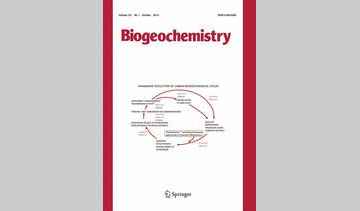The making of an ice storm
Ice storms are powerfully disruptive to northeastern forests, but truly understanding their dynamics has proved challenging because they strike with little warning. Hubbard Brook LTER scientists took the matter into their own hands by creating an ice storm of their own making. The experiment, which was covered by NSF360 and Science Now, is allowing them… Read more »


